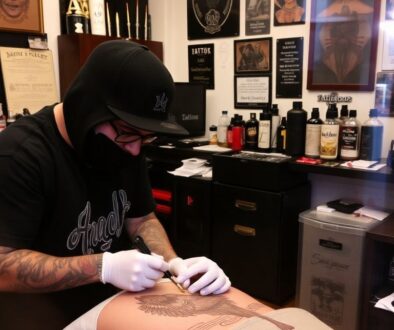Tattoo Removal: What Is It? and How to Become One?
Tattoos are a unique and fun way of expressing your individual thoughts, ideologies, and values. Hence, they are extremely popular, especially amongst youth. However, with tattoos, there is also a significant rise in tattoo removal businesses.
Such a huge demand for removal services can have multiple reasons. People can change their lifestyle or career, which necessitates them to get rid of their tattoos. They may regret a tattoo that they got as a teenager or young adult.
Also, tattoos can become a hindrance in choosing many professions, such as military services. They can also become a reminder of some past mistake, pain, or regret. People also choose to get their tattoos removed after becoming parents and starting a new family. Also, sometimes the tattoos can fade and lose their appeal. In any case, it is good to have an option to get them removed.
Let us discuss what is tattoo removal and how you can become a tattoo removal professional.
A) What is tattoo removal?
Tattoo Removal is a process that provides an individual with a convenient and professional option of getting rid of their unwanted tattoos. Before you book an appointment, you should ensure that the professionals have tattoo removal certification.
There are various methods of tattoo removal like laser treatment, dermabrasion, subcutaneous injection, etc. All these methods focus on breaking the ink particles and removing them from the skin surface. The number of sessions required will depend on the size of the tattoo, the colors used and the type of ink used. Moreover, the age of the tattoo can be a significant factor in the removal process.
B) How can you become a tattoo removal expert?
Tattoo removal is a time taking complicated process that can have the risk of severe infections. Hence, if you want to become a professional, you should have the patience, skills, and competence to become an expert.
Here are a few steps that can help you become a tattoo removal professional.
1) Training and certification
There are various tattoo removal training programs that teach different tattoo removal methods. These training programs include theory as well as hands-on practice to gain a complete understanding of the tattoo removal process. You can choose the programs at your convenience.
Having professional training helps you in acquiring the required skills. Also, tattoo removal certification vouches for your capabilities in carrying out safe tattoo removal.
2) Get a mentorship
After you have received the training and certification you need to find a mentor whose tattoo removal approach matched your own process. Getting a mentor will enable you to practice your skills in a professional setting.
Also, your mentor will provide you with the necessary guidance, and you can benefit from their years of experience. You can create a portfolio of your work and bring it to reputable clinics to get yourself a mentorship.
3) Get licenses
Having a tattoo removal certification is necessary to provide tattoo removal services. However, they are not enough. Depending on your location, you may be required to obtain various licenses.
Also, the condition to obtain the license may differ in each area. For example, you may need to obtain certification, training, and several hours of apprenticeship before getting a license. You will also need to clear the examination and pay the licensing fee.
Having a license increases your credibility. Also, it could be a mandatory requirement depending on your location.
4) Invest in tattoo removal equipment
There are different types of tattoo removal equipment available in the market. They vary in their features and capabilities. Some equipment can help in removing various types of tattoos, while others can be specifically used for certain types of inks.
Depending on your chosen technique and approach to tattoo removal, you can purchase tattoo removal equipment. You can also take the help of your mentor in arriving at your decision.
These are some of the tips that can help you in becoming a tattoo removal technician.


